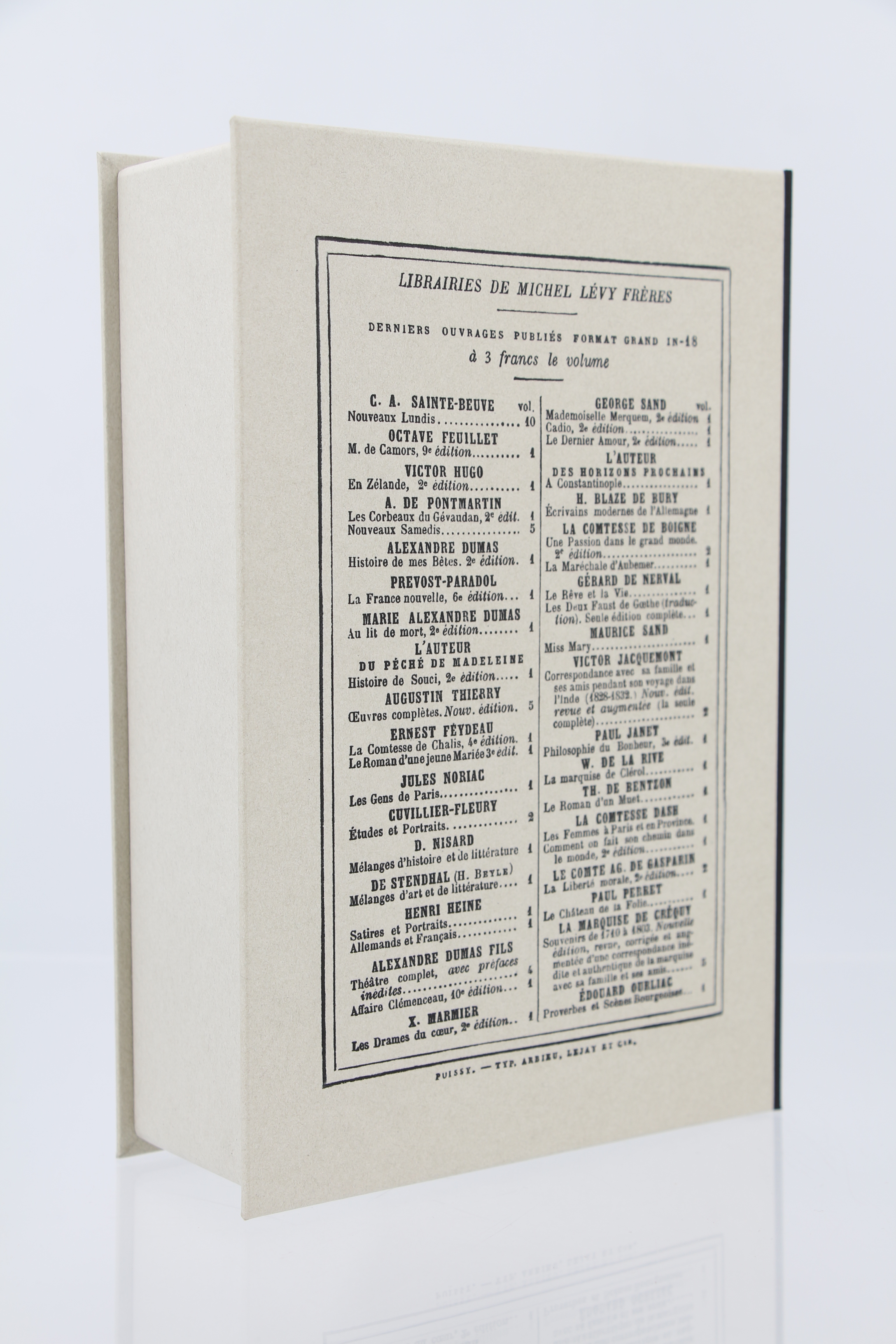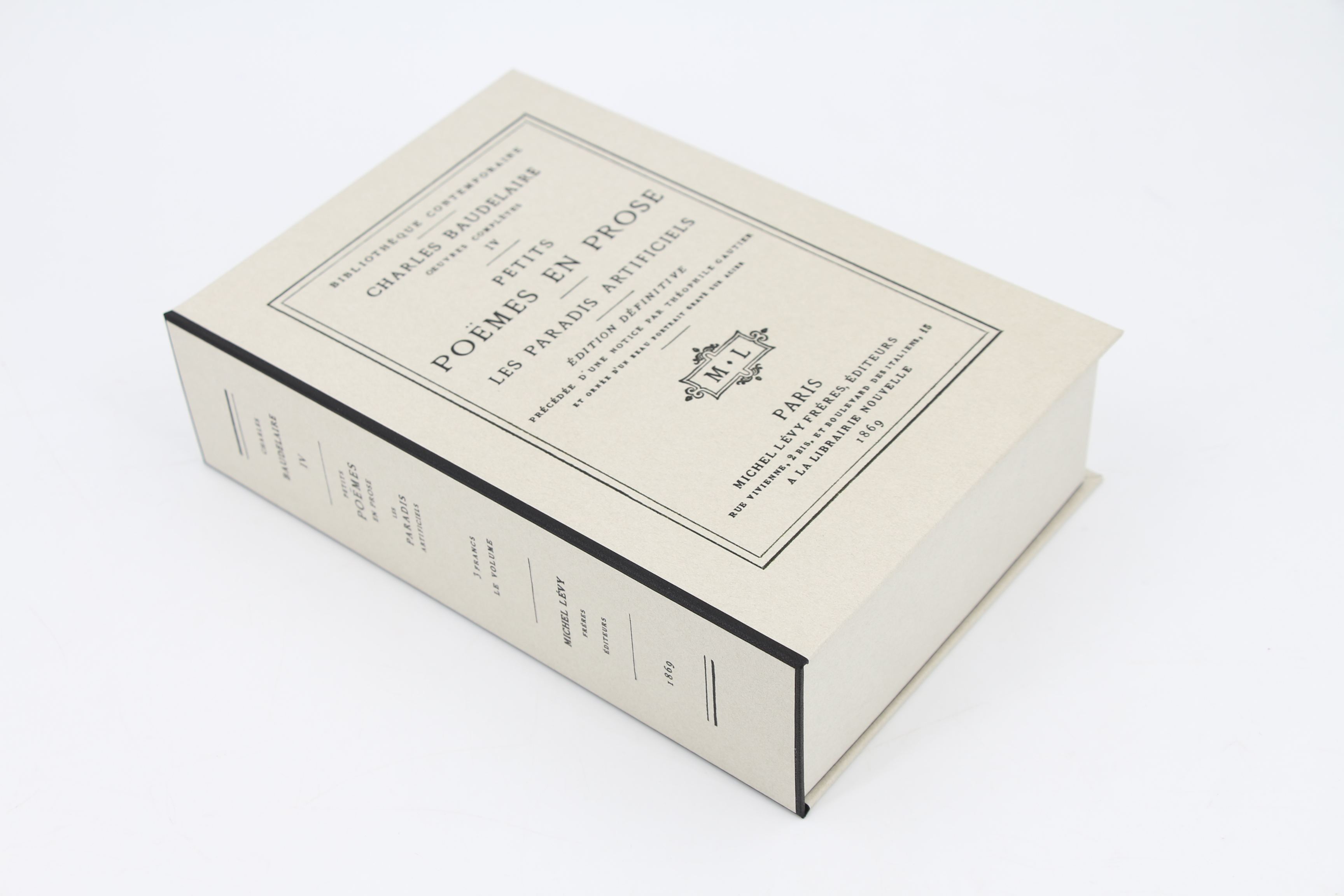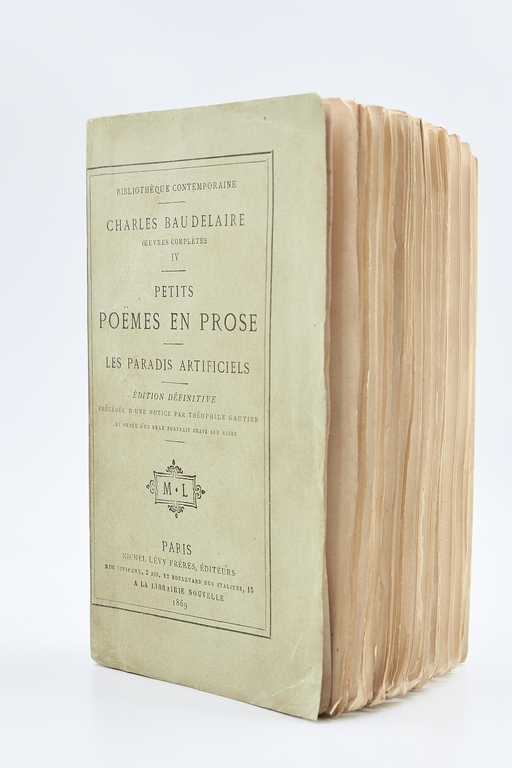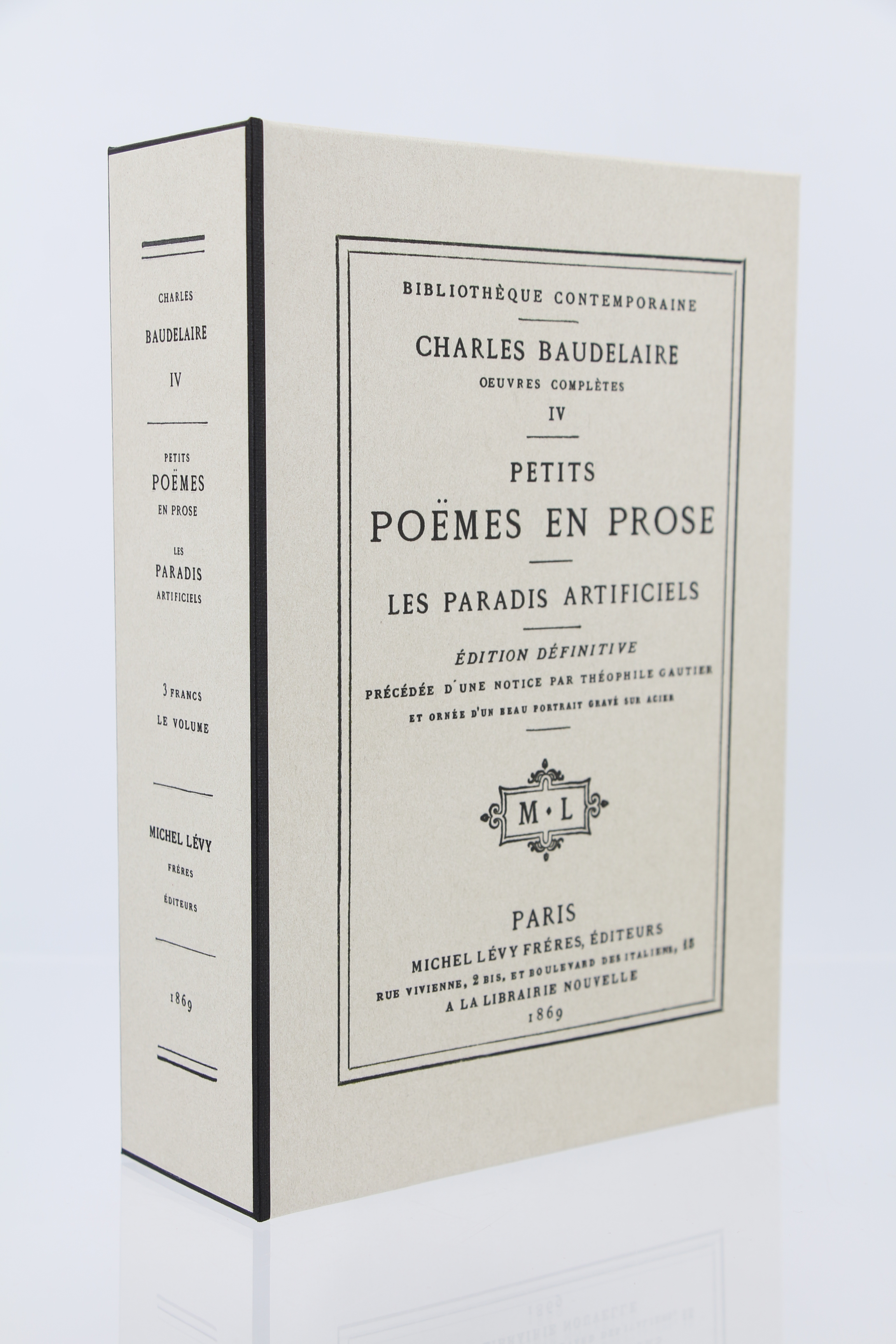“Who among us has not dreamed the miracle of a poetic prose, musical without rhythm or rhyme, supple and agile enough to adapt to the lyrical movements of the soul, to the undulations of daydreams, to the leaps of consciousness?”
Petits poëmes en prose - Les Paradis artificiels
[Little poems in prose - Artificial Paradises] [Paris Spleen]
First edition of Baudelaire's Petits poëmes en prose later published by the better-known title Le Spleen de Paris - Petits poëmes en prose. One of the very rare copies printed on hollande, only deluxe issue (‘grands papiers').
With a preface to the collection by the author, derived from a letter to Arsène Houssaye, in which he articulates his ambitions for the prose poems. The poems are followed in this volume by the second edition of Paradis Artificiels.
This edition was used as the fourth volume of Baudelaire's complete works, as stated “œuvres complètes” on the cover. It was also sold separately, given the several years it took to publish all seven volumes of the complete works.
Exceedingly rare first edition copy printed on hollande, the only deluxe issue: less than ten copies are said to have been printed. A rare survival in the original wrappers that has escaped rebinding. It is the only such example we can trace in trade records.
A keystone to the canon of the modernist literary movement, Baudelaire's prose poems are considered one of the earliest and most successful examples of a specifically urban writing, a close equivalent of the city scenes of the Impressionists. They had a far-reaching effect on subsequent poetry, leading to Rimbaud's Illuminations, Lautréamont's Songs of Maldoror, Huysmans' Dish of Spices - as Cheryl Krueger notes « Le Spleen de Paris changed the course of poetry beyond France as well, paving the way for future writers of the prose poem genre: Jorge Luis Borges, T.S. Eliot, Franz Kafka, Rainer Maria Rilke, Walt Whitman, and Gertrude Stein, to name only a few ». The fifty poems were posthumously collected in this 1869 first edition, five of which had never even appeared in print. As chaotic in appearance as The Flowers of Evil were architecturally organized, this first edition takes up Baudelaire's original assemblage. He himself saw his prose poems as a counterpart to his Flowers, “although with much more freedom, detail and mockery” (letter to Jules Troubat, February 16, 1866). This connection is further established by the presence of key verse-prose doublets within the two collections, such as "La Chevelure" and "Un hémisphère dans une chevelure".
The poet thus makes a definitive turn towards a modern poetry that revels in its own contradictions, "containing multitudes" in the words of Walt Whitman, another great painter of modern life. Baudelaire was the first to openly define his writings as “prose poems”, uniting two terms so starkly opposed that each qualifies as itself by not being the other – thus collapsing one of the most important semantic barriers shrouding the genre of poetry.
We are able to trace just four copies on hollande, all bound:
- The Charles Asselineau copy (bound by Capé, Masson-Debonnelle) in the Jacques Doucet library, Paris
- A copy from the Noilly, Hayoit and Pierre Leroy libraries (bound by Chambolle-Duru)
- A green half-morocco (Porquet sale, 1888)
- A red half-morocco (Teschener sale, 1891)
A true bibliophilic rarity, containing the radical productions of a cursed poet, who invited prose into his poetry after mastering verse.
Vicaire, I, 350.





